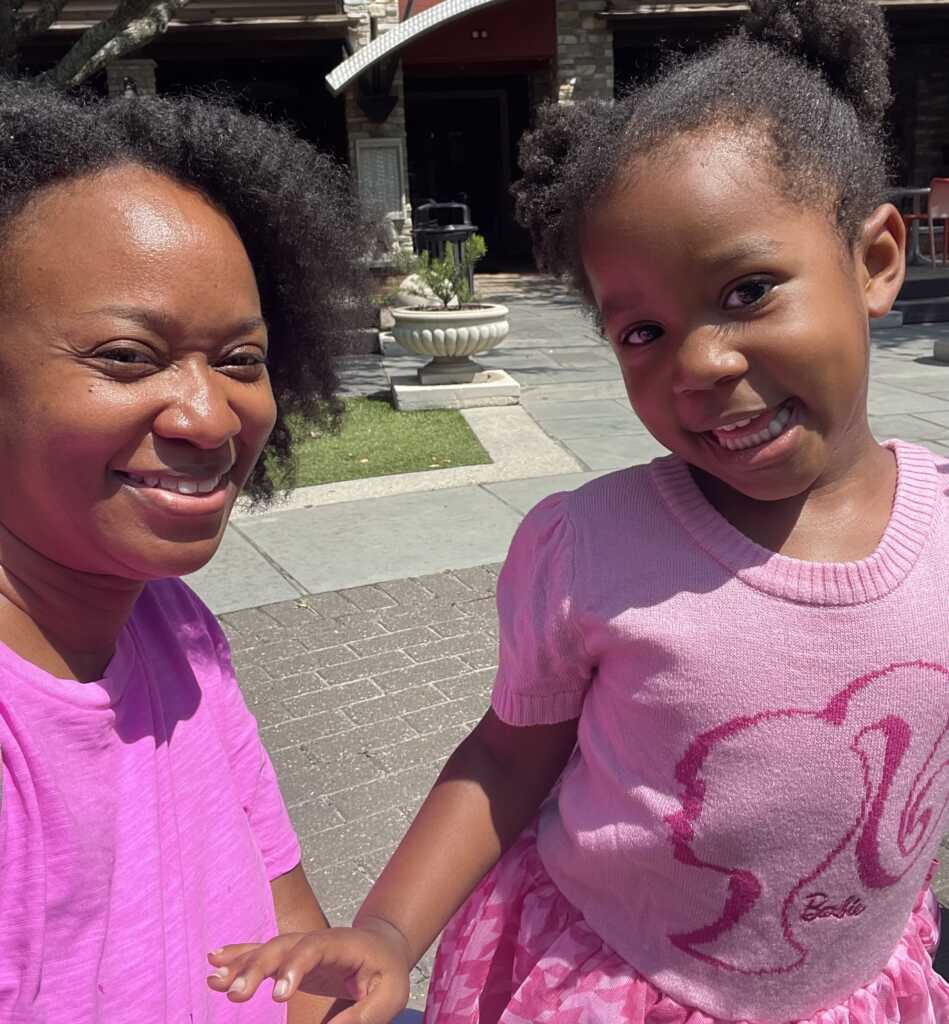Barbie, Made For Mothers And Daughters
 “We girls can do anything, Right Barbie?” That was the slogan I would proudly sing aloud as a little girl playing with my Barbie dolls back in the mid-80’s. If you’re a young Gen X / elder Millennial Mom (a Xennial, if you will), you were probably singing along too.
“We girls can do anything, Right Barbie?” That was the slogan I would proudly sing aloud as a little girl playing with my Barbie dolls back in the mid-80’s. If you’re a young Gen X / elder Millennial Mom (a Xennial, if you will), you were probably singing along too.
Barbie was not without controversy, but for many of us she symbolized what we hoped to be; beautiful, independent, successful, and happy. Luckily, for little Black girls at that time, Barbie could also be Black! Thanks to Mattel’s Chief Designer of Fashions and Doll Concepts, Louvenia (Kitty) Black Perkins, the first Black Barbie was created in 1979. Barbie was living her best life and she gave us girls the confidence to dream big and work hard so that when we grew up, we could live our best life too!
Naturally, our daughters would be just as obsessed with Barbie as we were, right?
If you are raising a Zoomer (a member of Generation Z born between 1997 and 2012) like me, the answer is probably a hard NO. Imagine my dismay when my first-born daughter didn’t take to Barbies the way I did, preferring, L.O.L Surprise! Dolls instead. What was I going to do with my childhood Barbie collection that I’d been saving for her?!
While Barbie represents the perfect ideal woman, L.O.L dolls are cool, sassy and unique. Between 2011 and 2015, Barbie sales dropped by a third making way for L.O.L Surprise! to take over the doll market in 2016. Perhaps the brand of “Girl Power” messaging that Barbie promoted in the 80’s and 90’s was no longer needed for this new generation of girls coming of age in a time where it is not as farfetched for a woman to be the president of a Fortune 500 company or the President of The United States for that matter. Not only can she have a successful career, but she can be a mom with a career or a stay-at-home mom, or not be a mom at all. She has choices and she can just be herself, and that is enough.
Barbie, the Movie
A sentiment illustrated throughout the highly anticipated movie, Barbie. And by highly anticipated, I mean me. I am not ashamed to say that my pink outfit was planned weeks in advance. My tween was excited to see the movie, despite her anti-Barbie stance – as was my toddler, who is now completely Barbie obsessed! (So, there is still hope that I can live out my mother-daughter Barbie dreams!) Secretly, I was the most excited because let’s be honest, they don’t really know Barbie like I know her. As we settled into our luxury reclining seats at Cinemark Perkins Rowe, I soon realized that this movie was for all of us.
Barbie is about mother-daughter relationships. It is a coming-of-age movie for millennial moms and their pre-teen daughters, as both are entering new phases in their lives. The oldest millennials are entering middle age while the youngest Gen-Zer’s are approaching adolescence. Most millennial moms are also grappling with their little girls growing up and becoming the beautiful, independent, successful, and happy women they envisioned them to be – our very own Barbie Dolls in the making. Ironically, Ruth Handler the inventor of Barbie, made the doll for her daughter after watching her play make-believe with her paper dolls, pretending they were adults with careers. In her autobiography Ruth wrote, “my own philosophy of Barbie was that through the doll, the little girl could be anything she wanted to be. Barbie always represented the fact that a woman had choices.”
Barbie was always about mothers and daughters


At that moment, I thought of my own mom, who never had the opportunity to play with Barbies growing up. She lived vicariously through me, filling my room with all things Barbie but making sure that my Barbies looked like me. So, there was never any doubt in my mind that I could do anything Barbie could do.
I thought of my pre-teen who chose not to play with Barbie dolls and how amazing it is that she had the privilege of choice that I did not always have growing up.
I also thought of my toddler who is just discovering Barbie. With the changing landscape of women’s rights, girls in her generation may once again need Barbie’s message of Girl Power. They are now growing up in a time where they have fewer rights than their mothers and grandmothers once had. Luckily for them, the doll is now even more diverse and inclusive so that ALL little girls can see themselves in Barbie.



















